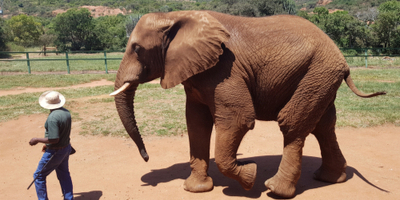Game Warden
Game wardens, often referred to as a conservation officer, combine law enforcement with an understanding of natural resources to protect the environment, ensure recreational safety, and uphold strict regulations that govern the use of natural resources. If you’re interested in this career, you should plan on spending much of your time outdoors. Wardens and conservation officers may work in parks, lakes, forests, and other natural areas. However, they may occasionally go into residential areas to capture animals.
Game Warden Job Description
The work of a game warden can change from day to day and season to season. For example, during the deer hunting season, game wardens may be on call 24 hours a day to check out reports of illegal or unsafe hunting practices. Large municipalities may have multiple game wardens that take turns being on call. The California Department of Fish and Wildlife notes that wildlife officers are responsible for country areas, bodies of water, beaches, and deserts. Since game wardens oversee hunting and other recreational activities, there may be situations that include firearms. In addition, the time spent in natural environments may bring you face-to-face with wild animals.
Game wardens/conservation officers tend to work independently, so it’s possible to go days without seeing a peer or another law enforcement official. While it’s very important to be able to work alone, game wardens should also be capable of collaborating with other law enforcement personnel and departments when the situation calls for it.
Game wardens can have a long-lasting impact on local ecological systems and animal populations. They frequently investigate and stop poachers who threaten endangered animals, as was the case recently in Wyoming when poachers pled guilty to shooting a buck mule deer.
How to Become a Game Warden
Prior to entering the workforce as a game warden, it’s recommended to follow the education and training requirements listed below.
Education Requirements
Depending on which state you live in, you may need an associate degree or a bachelor’s degree to apply for a game warden position. A few states do not have any educational requirements for game wardens. Many states require applicants to have a bachelor’s degree in environmental conservation, environmental science, or a related field. A two-year associate degree is sufficient in some states. For some employers, any bachelor’s degree or associate degree is all that’s required. While you may not need an environmental science or wildlife management degree, you may need to have a certain amount of natural science credits.
However, since game wardens are still law enforcement personnel, the education requirements do not stop there. After earning your degree and getting a job as a game warden or conservation officer, you’ll likely need to attend a police academy. This training tends to last less than six months, and it is typically sponsored by your employer.
Training Requirements
No matter where you live, you’ll likely need to go through an intensive testing process to become a game warden or conservation officer. For example, the hiring process at the Indiana Department of Natural Resources takes about seven months. You must first pass a written exam that tests your written skills, mathematical skills, and basic comprehension.
If you pass the preliminary round of testing, you may be selected to attend the conservation officer program. In Indiana, there is a specific school for conservation officers. In other states, potential game wardens may attend the general police academy. Regardless of which facility you attend, you’ll likely receive training on wildlife conservation, boating laws, hunting laws, and other laws specific to your area.
Game Warden Salary and Career Outlook
Game wardens and conservation officers are hired all over the country, but the job outlook may be best in areas with large amounts of wildlife and natural space. In addition, states with a focus on hunting and outdoor recreation may have a greater need for conservation officers.
Overall, the average salary for conservation officers is $59,500 per year (O*Net, 2022). However, the average salary varies significantly between states. In California, CareerOneStop reports an average annual salary of $88,960. Missouri game wardens earn an average of $54,870 each year (CareerOneStop, 2022). The median salary in Texas, $77,980, is more than $18,000 higher than the national average (CareerOneStop, 2022).
You may earn more if you work irregular hours, which is common for game wardens. Some employers offer incentive pay for weekend or late night hours. As you gain seniority with your park or state agency, you may increase your earning potential.
2022 US Bureau of Labor Statistics salary and employment figures contained here reflect national data, not school-specific information. Conditions in your area may vary. Data accessed November 2023.
If you enjoy wildlife and want a career in law enforcement, learn more about this career path by contacting the schools in our directory today!

